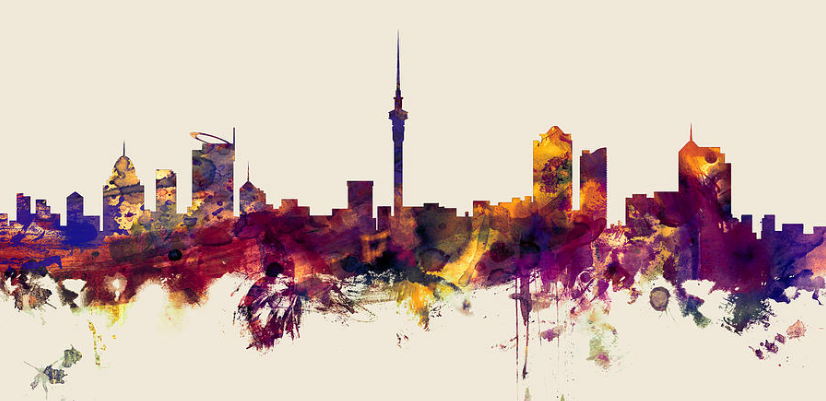Representatives of the worldwide humanist movement have condemned the spread of “the politics of division” in various countries and regions, and urged governments to resist consolidating power by demonizing minorities.
Representatives of humanist and secular organizations under the umbrella of the International Humanist and Ethical Union (IHEU) approved The Auckland Declaration Against The Politics of Division, at the IHEU General Assembly in New Zealand today.
The resolution (see below) focuses on the demagogic tendency, “resurgent in many parts of the world… exemplified in a new generation of so-called “strong men” politicians, who purport to stand up for popular interests, but who are eager to diminish human rights and disregard minorities in order to gain and retain power for their own ends.” Such leaders are “a present threat to human dignity, the rule of law, human rights, and freedom globally.”
Humanists have been particularly concerned about trends in Russia, the United States, China, India, Hungary, Poland, the Philippines, and Turkey.
 Welcoming the resolution, Sara Passmore, president of the Humanist Society of New Zealand which hosted the IHEU in Auckland, said “I’m delighted that this resolution has been approved here in New Zealand. This is a country that is working hard to redress historical injustices.
Welcoming the resolution, Sara Passmore, president of the Humanist Society of New Zealand which hosted the IHEU in Auckland, said “I’m delighted that this resolution has been approved here in New Zealand. This is a country that is working hard to redress historical injustices.
“Even so, we have an increasingly divided population, with a false narrative of persecution dominating headlines to the detriment of genuine discussion about human rights. I hope that these efforts in New Zealand would serve as something of a model: as the Auckland Declaration says, we must proactively resist the tendency to divide and demonize human beings.”
 Introducing the resolution at the IHEU General Assembly, president of the IHEU, Andrew Copson, said, “I think it’s fairly safe to say that around the world, demagogues of various stripes have been on the rise in recent years. In Turkey, the Philippines, even the United States, there are serious threats to human rights – and perhaps now even to the very value of truth itself. … Almost everywhere there is some discussion of “fake news”, “alternative facts” and the pros and cons of free media; there is a rising dissent against universal human rights; and — this is the main focus of our resolution — a concerted attempt from many quarters to divide humanity. …”the Politics of Division” refers to the committed attempt to drive wedges between human beings, whether it’s ethnic majorities against minorities, indigenous-born against immigrants, attacking refugees, or singling out people by race, religion or belief, sex, sexuality, gender identity, or any other arbitrary characteristic under which people are demonized.
Introducing the resolution at the IHEU General Assembly, president of the IHEU, Andrew Copson, said, “I think it’s fairly safe to say that around the world, demagogues of various stripes have been on the rise in recent years. In Turkey, the Philippines, even the United States, there are serious threats to human rights – and perhaps now even to the very value of truth itself. … Almost everywhere there is some discussion of “fake news”, “alternative facts” and the pros and cons of free media; there is a rising dissent against universal human rights; and — this is the main focus of our resolution — a concerted attempt from many quarters to divide humanity. …”the Politics of Division” refers to the committed attempt to drive wedges between human beings, whether it’s ethnic majorities against minorities, indigenous-born against immigrants, attacking refugees, or singling out people by race, religion or belief, sex, sexuality, gender identity, or any other arbitrary characteristic under which people are demonized.
“I do believe this is happening more – and in more countries where in previous decades we might have thought that such division was being resisted. … I believe it is imperative that as humanists we have some response to these anti-Enlightenment, anti-human trends, and I commend the resolution to you.”
The full text of the resolution follows below.
Auckland Declaration against The Politics of Division
The right of all people to participate in the government of their society has been a foundation of human freedom and happiness wherever it has existed. We are fortunate to live in a world in which, through the efforts of humanists as well as religious believers, democracy is widely recognised as being the most just, rational, and effective form of governance available to humanity. Today, more people than ever before have the ability to shape the political direction of the community in which they live.
However, wherever there is democracy, there is always the risk of its abuse by demagogues, who seek to exploit the genuine grievances of sections of the population by misdirecting blame onto unpopular minorities, which may include pre-existing and competing political groups who are maligned as “elites”. Demagogues frequently employ intolerant forms of nationalism as well as other forms of prejudice and hatred. Their rhetoric appeals to negative emotions rather than to empathy and reason.
This politics of division is resurgent in many parts of the world. It is exemplified in a new generation of so-called “strong men” politicians, who purport to stand up for popular interests, but who are eager to diminish human rights and disregard minorities in order to gain and retain power for their own ends. They are a present threat to human dignity, the rule of law, human rights, and freedom globally.
Against this tendency, we affirm:
The best ethical foundation from which to approach the problems of today’s world and the future of us all is to try to see humanity as one global community. The greatest achievements of human progress and solidarity can be won by rejecting the politics of xenophobia and tribalism and instead working together for the common good.
Democracy is much more than a periodic opportunity to vote. For democracy to flourish it must be underpinned by the rule of law and the principle of equality under the law for all. Respect for human rights as defined in The Universal Declaration of Human Rights of 1948, including the right to freedom of expression, should be a minimum standard for all democracies. The human rights of minorities, not just majorities, must be upheld and protected. Freedom of expression must include the right to openly criticize political parties, leaders, and policies. As well as voting positively for representatives, democracy must respect the value of a free press and include systems of transparency, accountability, and the capacity for the people to criticise and peacefully replace failing and unpopular governments.
Democracies can thrive only in a culture of open debate. Debate and rational inquiry should seek to settle disagreements in a peaceful and tolerant manner.
Today’s problems are more complex than ever before. Any politician claiming to have easy answers to them must be subjected to great scrutiny.
Across the world the speed of human progress is accelerating but the fruits of human progress are not being evenly enjoyed. Infant mortality is declining, life expectancy and income are increasing but many are still in poverty in a world of plenty. Too often, human rights are violated, there is insecurity, and in many countries there are new threats to economic stability, the environment, and social protection. These problems should be addressed by individuals, non-government organizations, governments, and international organizations.
We reject the politics of division and call on all politicians and citizens to reject the over-simplified policy-making and rhetoric which characterize it and to recognise the damage to humanity that divisive politics can cause.
We commit ourselves to addressing the social causes of the politics of division: social inequality, a lack of respect for human rights, popular misconceptions about the nature of democracy, and a lack of global solidarity; and we call upon our member organizations and all humanists to join us in this work.
We urge humanists internationally to uphold and advocate the values of democracy, rule of law, equality, and human rights, and to identify and resist the politics of division wherever they see it in their own nations and internationally.
